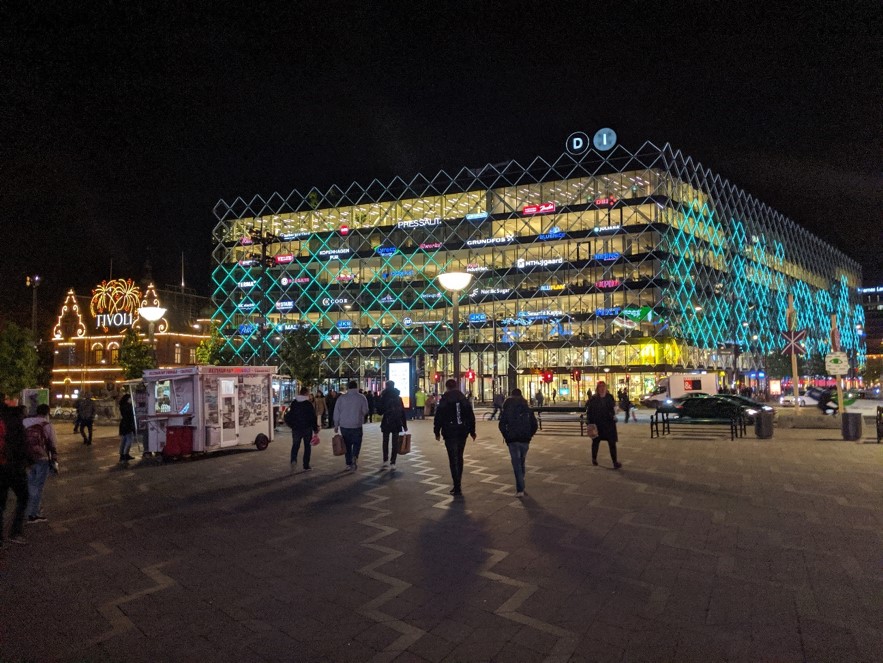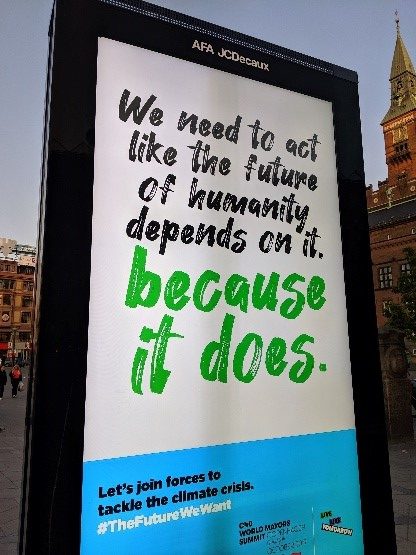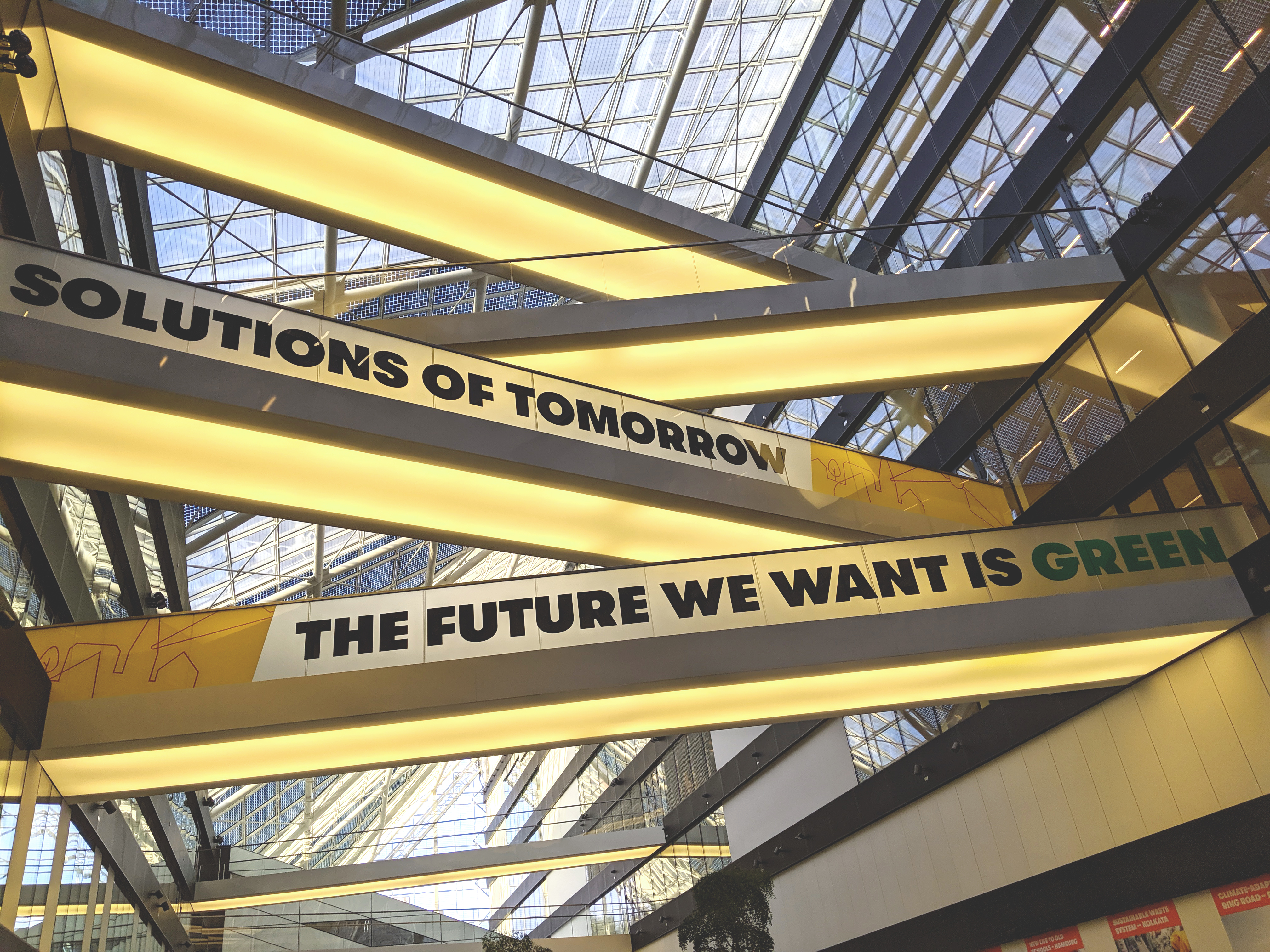Equity, Access, and Inclusion are Critical to Climate Action
 This guest blog post is written by Elevate Energy’s Chief Operating Officer Delmar Gillus.
This guest blog post is written by Elevate Energy’s Chief Operating Officer Delmar Gillus.
This fall, I attended the C40 World Mayor’s Summit in Copenhagen, Denmark. Mayors and delegates from all around the world gathered to share ideas, technologies, and strategies to mitigate the climate crisis and take climate action.
The level of global collaboration is exciting and inspirational. Nations and cities are finding ways to work together on an unprecedented scale even in the face of ever-growing concern that we’re racing against the clock to prevent “untold suffering.” This time of fear and uncertainty also holds great opportunity.
While truly inspired, I also felt that something important was either missing or under-emphasized: equity and access. Left unaddressed, large percentages of our population that are disproportionately affected by the impacts of climate change will not be able to fully participate in the solutions and opportunities these new innovations and solutions will bring. We will soon see record numbers of climate refugees as famines, once-in-a-lifetime storms, unseasonably high temperatures, rising sea levels, and changes in growing seasons for life-sustaining crops drive people from their homes and communities. These events are already impacting those that have limited voices and resources at a disproportionate rate, and this will only get worse.
 Mia Nyegaard, Mayor of Social Affairs for the City of Copenhagen, abandoned her prepared notes to instead make an impassioned plea for inclusion, equity, and access as we develop clean energy economies. Herman Mashaba, Mayor of Johannesburg, similarly talked about the need to connect climate action to affordable housing and job creation. Other mayors, deputy mayors, and speakers raised these concerns, but are we doing enough?
Mia Nyegaard, Mayor of Social Affairs for the City of Copenhagen, abandoned her prepared notes to instead make an impassioned plea for inclusion, equity, and access as we develop clean energy economies. Herman Mashaba, Mayor of Johannesburg, similarly talked about the need to connect climate action to affordable housing and job creation. Other mayors, deputy mayors, and speakers raised these concerns, but are we doing enough?
While policymakers and innovators are mindful of the need to be inclusive, inclusivity is often addressed on the back end, leaving those most in need with limited influence on the solution and even fewer roles in the implementation. This can and must change. For example, as we discuss new policy, such as the Global Green New Deal that was announced at C40, we need to focus on the ideas and policies that encourage and incentivize job training, job creation, and provide access to new markets. Many of today’s solutions often focus on those that can afford them, while providing limited solutions for those that are under daily climate distress.
This discussion must be inclusive of the needs of underserved communities. Climate solutions that address the needs of vulnerable communities should include:
- Prioritization (and incentivization) of clean energy projects that provide new technology and affordable, clean power to everyone.
- Energy efficiency solutions that focus on the heating and cooling needs of affordable housing and shared public buildings.
- Job creation that reflects the diversity of local communities.
These solutions will only be effective and sustainable if underserved communities are meaningfully included in their planning, implementation, and maintenance.
 By 2050, the number of climate refugees may be as high as 1 billion, many coming from environmental justice communities that were left with no options other than to flee their communities. With this many affected people and associated climate impacts this high, vulnerable communities should be the top priority, not an afterthought. Solutions and capital priorities that focus mostly on innovations that benefit the needs of affluent populations will not address enough of the climate challenge and will exacerbate climate impacts on vulnerable communities. At this stage, time is a resource in short supply. Considering that breathing clean air, drinking clean water, and living in a stable environment impacts all of us, we need to ensure our solutions do the same.
By 2050, the number of climate refugees may be as high as 1 billion, many coming from environmental justice communities that were left with no options other than to flee their communities. With this many affected people and associated climate impacts this high, vulnerable communities should be the top priority, not an afterthought. Solutions and capital priorities that focus mostly on innovations that benefit the needs of affluent populations will not address enough of the climate challenge and will exacerbate climate impacts on vulnerable communities. At this stage, time is a resource in short supply. Considering that breathing clean air, drinking clean water, and living in a stable environment impacts all of us, we need to ensure our solutions do the same.
C40 was a powerful, solutions-oriented discussion on how the collective world community can collaborate to take climate action and do it in way that supports innovation and world economies. This is a bold and ambitious undertaking, and one that we must not fall short on. As we focus our energy on this critical endeavor, our solutions must be inclusive, equitable, and accessible. Let’s work together to create and implement climate solutions that work for everyone.



